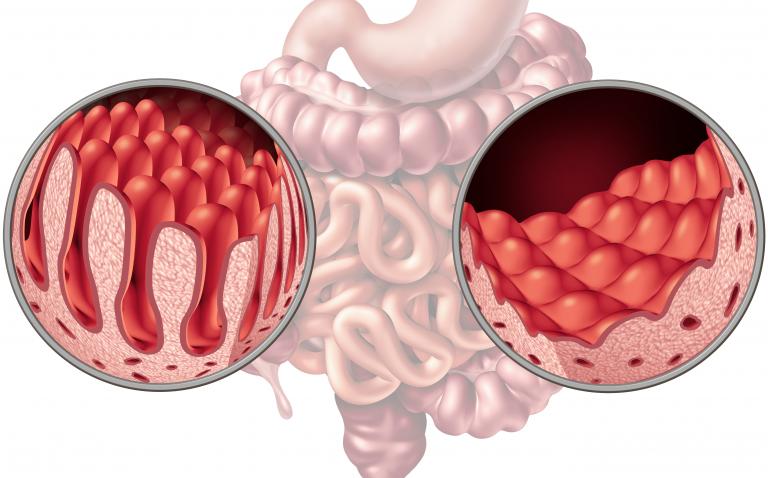Immune cells in the bowel of people who suffer with coeliac disease are permanently replaced by a new subset of cells that promote inflammation, suggests a new study involving researchers at Cardiff University.1
This permanent ‘immunological scarring’ lays the foundation for the disease to progress and could have long-term implications for gut health in affected patients.
The results also suggest that the same process could be contributing to other chronic intestinal disorders, such as ulcerative colitis.
Dr James McLaren, from Cardiff University’s School of Medicine, said: “In coeliac disease, T cells found in the bowel react to gluten and cause inflammation, which damages the lining of the bowel.
“Under normal circumstances, T cells have a protective role in the bowel and form a stable population. However, in coeliac disease, they contribute to the inflammatory process, causing short-term symptoms and increasing the risk of developing certain types of bowel cancer.
“Our new study suggests that even though short-term symptoms, such as diarrhoea and abdominal pain, can be alleviated by removing gluten from the diet, long-term implications may remain, because ’tissue-healing’ T cells in the bowel are permanently replaced by ‘pro-inflammatory’ T cells.”
Source: Cardiff University.
Reference
- Mayassi T et al. Chronic inflammation permanently reshapes tissue-resident immunity in celiac disease. Cell 2019; DOI: 10.1016/j.cell.2018.12.039










